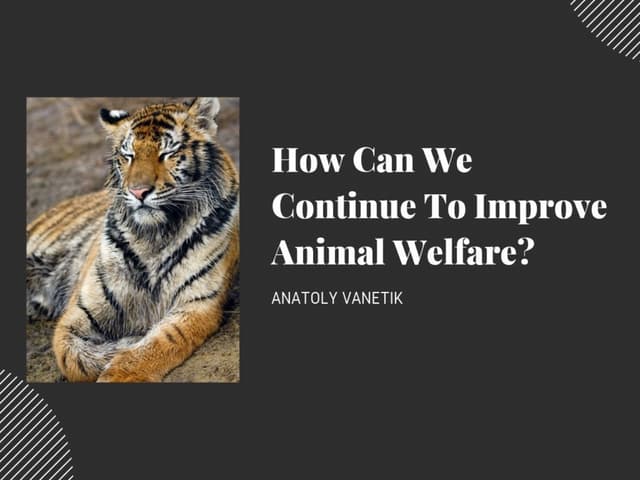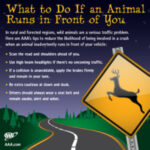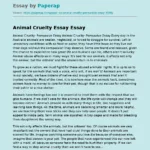In the digital age, the act of clicking “like” or tapping “share” has seeped into the very fabric of our daily lives, transforming passive sentiments into a form of social currency. Social media platforms become echo chambers where compassion for animal welfare reverberates, yet contributions often remain ephemeral, mere whispers in a cacophony of digital noise. To achieve genuine progress in animal welfare, it is crucial to transcend this superficial engagement and delve into actions that resonate deeply with the plight of our voiceless counterparts. The journey of advocating for animal welfare is akin to tending to a robust garden; it requires not just the right seeds but also diligent cultivation, understanding, and commitment.
At its core, animal welfare is a multi-faceted issue, encompassing everything from the humane treatment of domestic pets to the intricate networks of wildlife conservation. Thus, every contribution—no matter how small—becomes a vital thread in a larger tapestry. Yet, how can we transform mere advocacy into action? Herein lies the art of true engagement, where each person can carve out a profound impact.
First and foremost, education serves as the fertile soil from which meaningful activism can grow. To effectuate societal change, one must understand the complexities surrounding animal welfare. Engaging with reputable literature, documentaries, and expert talks provides a nuanced view that is often absent in viral posts. For instance, comprehending the intricacies of factory farming might catalyze a shift from consuming meat thoughtlessly to advocating for humane farming practices. Only through a lens of knowledge can one discern the systemic injustices faced by animals, thus arming oneself with the tools necessary for advocacy.
Transitioning from awareness to action opens a new dimension in the fight for animal welfare. One effective route is volunteering at local shelters or rescue organizations. This hands-on experience equips individuals not only with practical knowledge but also with the profound understanding of the challenges these establishments face. From providing basic care to animals in distress to participating in efforts for adoption drives, active volunteering embodies commitment far beyond the clicks of social media.
Moreover, fostering a relationship with local wildlife and conservation groups can further amplify one’s impact. From participating in habitat restoration initiatives to organizing community events aimed at educating the masses about local ecosystems, the possibilities are both varied and impactful. Collaborating with these organizations cultivates a sense of community and shared responsibility—a realization that individual efforts can aggregate into significant change.
Another pivotal approach is supporting ethical consumerism. In an environment saturated with choices, consumers wield an extraordinary level of influence. Opting for products that are cruelty-free or adopting a plant-based diet showcases a commitment to animal welfare that extends beyond the digital realm. This choice makes a resounding statement to corporations, urging them to reconsider their practices and prioritize ethical standards. Purchasing from local, sustainable sources not only benefits animal welfare but also bolsters local economies, creating a ripple effect of positive implications.
Advocacy should not merely dwell in words; legislative engagement becomes another powerful tool in an activist’s arsenal. Understanding local, state, and federal laws governing animal welfare equips advocates to push for systemic change. This could involve writing letters to lawmakers, participating in public forums, or even organizing campaigns that aim to raise awareness around specific legislative issues. Notably, grassroots movements have the potential to ignite significant transformations, as they mobilize communities to collectively demand change from institutions that uphold outdated or harmful practices.
Equally vital is the foundation of fostering compassion and empathy toward all living beings. Initiating dialogues that challenge ingrained stereotypes can open the gateway to deeper understanding and respect for animals. Host discussions or workshops that bring together diverse perspectives, focusing on how cultures interpret and value animal lives. Through these conversations, barriers can be dismantled, fostering an environment where empathy flourishes.
Technology, while often criticized for generating superficial connections, can be harnessed as a formidable ally in advocating for animal welfare. Establishing informative websites, crafting compelling blog articles, or creating engaging YouTube channels can reach audiences far beyond the confines of one’s immediate community. The digital landscape is still a viable battlefield for animal welfare concerns, where meaningful content can galvanize global support for various causes.
Finally, reflections on personal lifestyle choices often lead to unexpected pathways of compassion. Whether it is nurturing a rescue pet, fostering animals in need, or even advocating against cosmetic testing, each action enriches the collective fight for animal rights. Cultivating mindfulness about the implications of our daily choices can shape a lifestyle steeped in empathy.
Contributing to animal welfare transcends the boundaries of social media. It is a dynamic interplay of education, action, compassion, and advocacy. To engage in this noble quest effectively, one must plunge into the depths of knowledge, emerge with a robust understanding, and use that enlightenment to sow the seeds of change. Ultimately, every effort, no matter how small, contributes to a sprawling landscape of awareness and dedication. As advocates for animal welfare, our role is to ensure that the echoes of compassion are not just fleeting sounds but resounding calls to action in our communities. The garden of animal welfare requires nurturing; it necessitates our hands, hearts, and genuine commitment to a world where every being can thrive.










